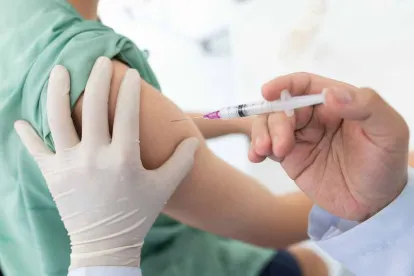While its rollout has been slow, the vaccine is being administered across the U.S. and in other countries. As of January 15, 2021, nearly 36 million doses of a COVID-19 vaccine have been administered, just over 11 million in the U.S. For a variety of reasons, organizations want to know whether their workforce members (employees, contractors, etc.) have been vaccinated. Some are trying to assess prospects for return to work, while others want to provide incentives to get the vaccine, and still others are managing customer demands to know if their vendor’s workforce has been vaccinated.
The EEOC has provided some guidance on the issue:
K.3. Is asking or requiring an employee to show proof of receipt of a COVID-19 vaccination a disability-related inquiry? (12/16/20)
No. There are many reasons that may explain why an employee has not been vaccinated, which may or may not be disability-related. Simply requesting proof of receipt of a COVID-19 vaccination is not likely to elicit information about a disability and, therefore, is not a disability-related inquiry. However, subsequent employer questions, such as asking why an individual did not receive a vaccination, may elicit information about a disability and would be subject to the pertinent ADA standard that they be “job-related and consistent with business necessity.” If an employer requires employees to provide proof that they have received a COVID-19 vaccination from a pharmacy or their own health care provider, the employer may want to warn the employee not to provide any medical information as part of the proof in order to avoid implicating the ADA.
So, based on the answer to the question posed above, we know the EEOC’s position is that asking or requiring employees to provide information on whether or not an employee was vaccinated is not a disability-related inquiry under the Americans with Disabilities Act (ADA). But that may not be the end of the inquiry. These are several considerations and best practices that organizations might consider before putting such requests to their workforce members.
-
Who wants the information, and why? As noted above, there could be several reasons for wanting to ask employees about their vaccination status. Those reasons can affect compliance and best practice considerations. For example, if an organization is working to accommodate customer demands for vaccination status of the organization’s employees who are performing services at the customers’ facilities, the organization might want to consider, among other things:
-
Does it need to provide the information to the customer?
-
Is consent/authorization necessary?
-
How should the information be transmitted?
-
Who at the customer would have access to that information?
-
Will the customer safeguard it?
-
-
What steps can be taken to limit compliance risk? If an organization decides to ask workforce members about their vaccination status, there are steps it can take to minimize compliance risk. For instance, an organization can minimize the chance of an ADA violation by (i) designing the request so it is not likely to elicit information about a disability, (ii) not asking why an individual did not receive a vaccination, and (iii) warning the employee not to provide any medical information as part of the requested proof of receipt of a COVID-19 vaccination. Similarly, employers that are subject to the California Consumer Privacy Act (CCPA) and wondering whether their notice at collection to California employees needs to cover vaccination information may decide to provide notice in the abundance of caution.
-
Is it necessary to even ask employees directly…couldn’t the organization look at its health plan’s claims information for vaccine-related administration charges? Aside from being arguably more administratively difficult, this method likely would be considered a violation of the HIPAA privacy rule. Plan sponsors may not use protected health information under HIPAA for an employment purpose without the employee’s authorization.
-
Does the collection and processing of vaccination information raise data privacy and security risks? Even if making the request is not a disability-related inquiry, it may be considered a medical inquiry, and the employee’s response, confidential medical information. While not subject to HIPAA in the employer-employee context, this information still may have protections under state statutory and common law. Consider, for example, that several states, such as California and Florida, include “medical information” as part of the definition of “personal information” under their breach notification laws. Accordingly, if that information is breached, which could include access to the information by an unauthorized party, notification may be required.
Additionally, statutory and common law obligations exist to require employers to safeguard employee personal information, which may include information about their physical health, such as vaccination status. Thus, maintaining reasonable safeguards to protect such information is prudent. This might include access management measures and record retention and destruction policies. It also may include having clear guidelines for making disclosures of this information and determining whether an authorization is needed before such information may be disclosed or accessed by a third party.
These are just some of the issues organizations may find themselves grappling with as COVID-19 vaccinations become more available. Thinking them through carefully should help organization minimize their compliance and legal risks as they continue to manage their businesses through this pandemic.




 />i
/>i
